7 European Countries It’s Easy To Retire To
When it comes to moving overseas, the ability to acquire long-term residency is one of the first considerations you need...
Top Destinations:
Whether you’re looking for fun and sun, a peaceful retirement, or the chance to earn some extra income, you’ve got a real world of opportunity open to you… In short, we’ve done our best to narrow down your best options, but only you can decide the right country for you.
Best For:
How Much Will It Cost You To Live Overseas?
The only honest answer is, we have no idea. And neither does anyone else. The only one who can answer that question is you. Here’s the most important thing to understand about budgeting your new life overseas…
Follow Us:
Upcoming Events
Live and Invest In Spain Conference
Offshore Wealth Summit
Greece Workshop
VALENCIA, SPAIN
Sep. 17-19, 2025
PANAMA CITY, PANAMA
Oct. 15-17, 2025
VIRTUAL
Nov. 13, 2025
Contact Our Events Team
Reach us with your questions by email at: events@liveandinvestoverseas.com
Unlock The World
Overseas Havens Reports
Conference Kits
Lahardan Books
Our Customer Service team is here to assist with any questions or concerns CustomerService@LiveandInvestOverseas.com
Top Destinations:
Whether you’re looking for fun and sun, a peaceful retirement, or the chance to earn some extra income, you’ve got a real world of opportunity open to you… In short, we’ve done our best to narrow down your best options, but only you can decide the right country for you.
Best For:
How Much Will It Cost You To Live Overseas?
The only honest answer is, we have no idea. And neither does anyone else. The only one who can answer that question is you. Here’s the most important thing to understand about budgeting your new life overseas…
Follow Us:
Upcoming Events
Live and Invest In Spain Conference
Offshore Wealth Summit
Greece Workshop
VALENCIA, SPAIN
Sep. 17-19, 2025
PANAMA CITY, PANAMA
Oct. 15-17, 2025
VIRTUAL
Nov. 13, 2025
Contact Our Events Team
Reach us with your questions by email at: events@liveandinvestoverseas.com
Unlock The World
Overseas Havens Reports
Conference Kits
Lahardan Books
Our Customer Service team is here to assist with any questions or concerns CustomerService@LiveandInvestOverseas.com

We Value Your Privacy! We will not share your email address with anyone else, period.
Home » Best Countries To Live, Invest, And Retire Overseas » Europe » Spain : Everything You Need To Know In 2025
Spain: An Established Haven For Foreign Investors And Expats That’s Rich In History, Culture, And Beautiful Scenery
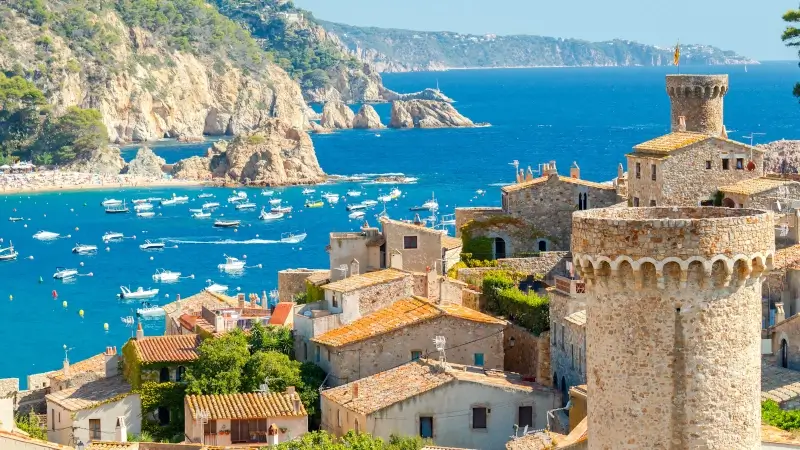
To say Spain is rich in history, culture, and beautiful scenery is an understatement.
The second biggest country in the EU after France, Spain is a beautifully diverse nation, brimming with culture and tradition.
Located on the Iberian Peninsula, Spain is bordered by Portugal and France, the rest of the country is surrounded by the Mediterranean, the Cantabrian Sea, and the Atlantic Ocean.

Reviewed By Kathleen Peddicord
Kathleen is the Live and Invest Overseas Founding Publisher. She has more than 30 years of hands-on experience traveling, living, and buying property around the world.

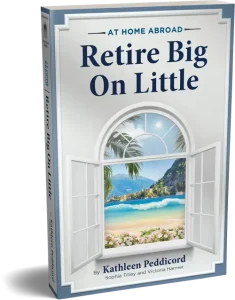


Experience The World’s #1 Retirement Haven
Sept. 17-19, 2025
Valencia, Spain
Start Your New Overseas Life Today
We Value Your Privacy! We will not share your email address with anyone else, period.
The varied surroundings play a part in creating the vibrant mix of cultures we see in Spain today; the rest of this cultural mix is down to Spain’s intriguing history.
Spain is made up of several autonomous regions, which have had their own language, culture, traditions, and social structures throughout history.
Many of these maintain a strong presence in today’s population, which creates a fascinating cultural mix throughout the country, leaving a lot to be discovered when relocating here.
The autonomous regions include Galicia in the northwest, Catalonia in the northeast, Andalusia in the south, and the Basque Country, located on the border between Spain and France.
Spain’s diversity goes beyond its culture; it also has several different climates and landscapes, including thousands of kilometers of coastline, beautiful mountains, and an abundance of enchanting towns and cities to explore.
Above all, these attractions bring people from all over the world to settle in Spain for its multitude of lifestyle opportunities.
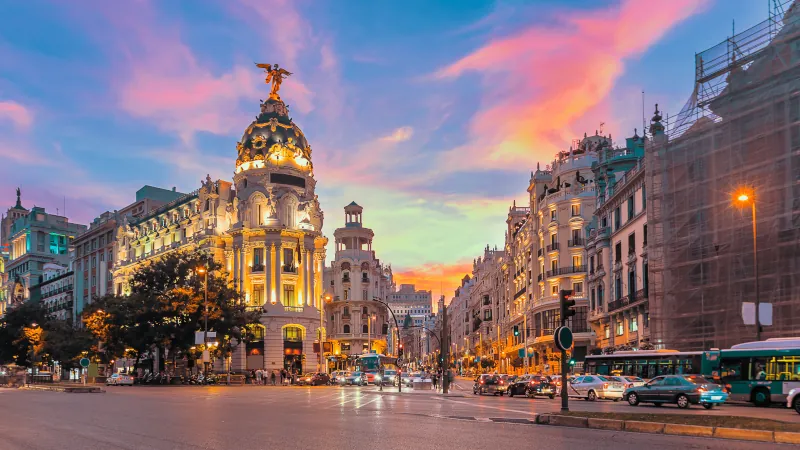
Spain tops the list of the most popular destinations for relocating, investing, and retiring overseas. Some of the benefits of settling on Spanish soil are low living costs, affordable housing prices and First World infrastructure.
Firstly, the incredible diversity combined with the warm temperatures, historic legacy, and friendly citizens make it an ideal alternative for those planning a new adventure overseas.
Boasting 3,000 hours of sunshine a year, Spain guarantees a sunshine-filled retirement. Temperatures are generally mild, although significant differences occur depending on the region and the season.
The south of Spain is known for its scorching temperatures in July and August, while the north of Spain is notorious for its high levels of rainfall throughout the year.
Spanish people are welcoming, and you will find it easy to settle in due to their openness and friendliness to foreigners. Language-wise, the majority speaks Spanish.
You’ll find school-age and university students speak some English and are keen to practice. However, older generations don’t so much, unless they work in tourism-related industries, so learning some Spanish before you arrive would be a welcome idea.
Don’t worry about perfecting your Spanish, as you will find Spain has a thriving expat community where you can comfortably make friends in your native tongue.
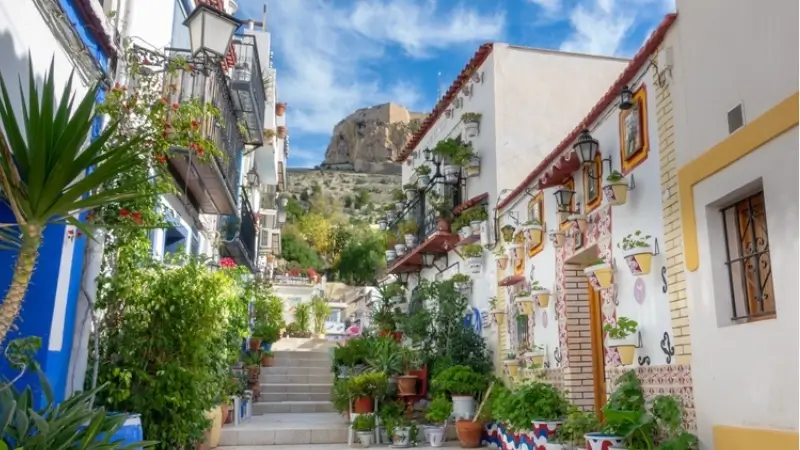
Spain has a reputation worldwide for its cheap living; you can live a luxury lifestyle on your social security check in some parts of Spain.
Thanks to world-class infrastructure, excellent health care, and beautiful weather, this leisurely living doesn’t require any compromises.
Despite Spain’s low cost of living, taxes are some of the highest in Europe. This is important to note, although day-to-day living is cheap, so it balances out.
Groceries and eating out are affordable. In certain parts of Spain when you order a drink at a bar, you are brought a small portion of food for free—olives, chips, maybe a Spanish omelet.
This tradition of tapas makes eating out a fun and affordable way to spend an evening.
In terms of real estate, the market in Spain is constantly fluctuating. Prices of properties in the bigger cities have exploded in recent years due to the increase in tourism.
Meanwhile, explore lesser-known cities such as Valencia, Cádiz, or Santande, and you will be rewarded with much lower property prices.
For those wanting to resort to the tranquility of the Spanish countryside, property in rustic areas such as Galicia or Almería cost next to nothing.

In Spain, the health system is held in high regard.
The quality of staff, service, and equipment are outstanding. In general, non-EU retirees will not have access to the Spanish health care system and will have to take out private insurance.
Plus, if you move to Spain as an employee or are self-employed, the situation is different. You will pay social security contributions, and so you will be issued with a social security number entitling you to health care, sickness, and unemployment benefits, as well as government pensions.
For minor problems, take advantage of the excellent farmacias (pharmacies), where highly trained pharmacists will recommend advice and remedies, some of which require prescriptions back home.
Here you will find a more detailed insight on health care in Spain and a breakdown of which kind of health insurance policy you may need.
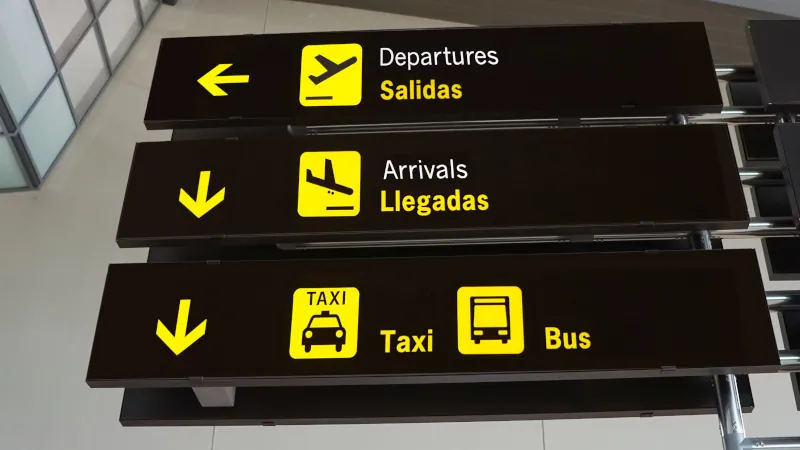
Spain has several international airports scattered across the country, including Barcelona and Madrid, where you can find direct flights from New York daily. However, depending on where your final destination is, you can get a connecting flight to a domestic airport or avail of the national rail service RENFE.
Transferring your belongings can be done either by plane, or boat, the latter taking quite a bit longer.
Countless companies are available to help you in this process, collecting your belongings at your home in the States, and delivering them to your door on the other side of the world.
If you’re looking to stay long-term, check out our full guide on visas and residency information in Spain.
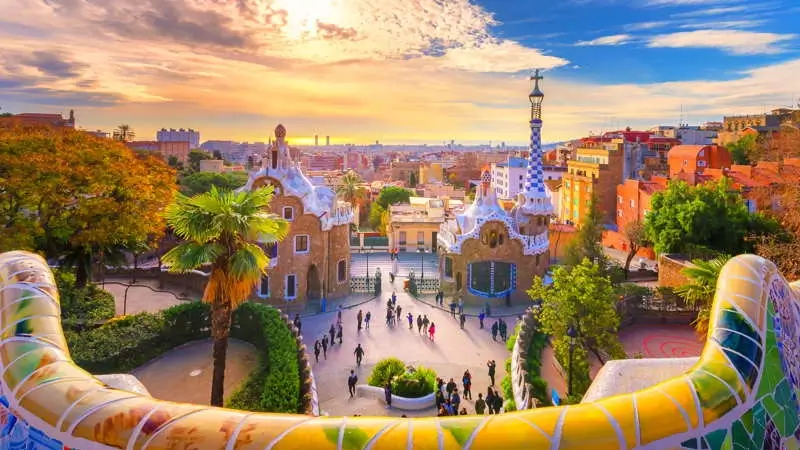
Spain has a unique adventure waiting for anyone who wants to immerse themselves in this cultural hub.
Cities with lively nightlife, beachside resorts with kilometers of unspoiled coastline, and picturesque towns and villages with bustling farmers’ markets.
Outside of Spain’s heavy tourist trail, is the lesser-known city of Santander. Santander is the capital city of the region of Cantabria and lies on the northern coast of Spain.
Built on a series of hills overlooking the Bay of Biscay, this is a mostly modern city with a beautiful seafront comprising several white-sand beaches within easy reach.
Santander is the perfect place for retirees, with endless museums and galleries to get your culture fix, a thriving tradition of gastronomy—mostly fresh seafood, and countless beaches to explore.
Another city undiscovered by many people outside of Spain is Valencia, along the Mediterranean coast. With an average daytime temperature of 70°F year-round, Valencia has some perfect weather conditions for an active, healthy, and varied lifestyle.
Combined with some of the finest beaches in Southern Europe, and La Calderona mountains in easy reach, this city is the ideal base for an active retirement.
Home of Spain’s most famous dish, paella, Valencia has a proud food culture to share with international residents.
Spain’s second-largest city; Barcelona, is a popular destination for tourists and expats alike. Thousands of expats settle in the capital of Catalonia in Spain’s northeast for its cosmopolitan vibe and energy.
People live, work, and shop in most of the city neighborhoods and districts, so each has its own community spirit, making it easier to fit into this big city as a foreigner.
The city encompasses lots of parks and charming plazas, scenic beaches, and has easy access to the beautiful Costa Brava to the north and the Costa Dorada to the south.
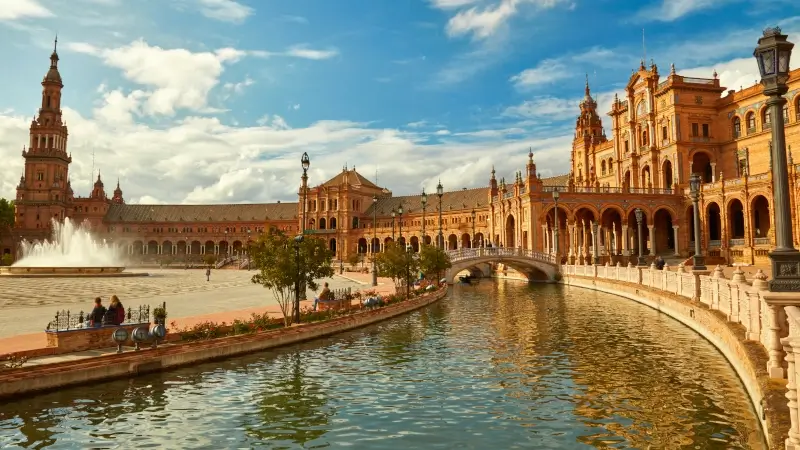
With the dollar at near-parity with the euro, this could be the best time in our lifetimes to be in Europe.
Where, specifically, should you be thinking about living or retiring on the Continent?
Spain could be your Old World dream come true… especially if budget is a concern. You could live or retire well in this country on a budget of as little as US$1,855 per month.
Here are 10 more reasons we say Spain is tops:
Spain is the most popular second-home destination in Europe and home to some 7.2 million expats. Despite its popularity, the cost of housing remains cheaper than many of its neighbors.
In short, Spain and Portugal boast many of the same attractions. So, how do property prices compare between the two?
Luis da Silva, our go-to real estate expert in the region, says:
“When you compare like with like, real estate in Spain is really much cheaper. Thanks to Portugal’s limited housing stock and prices inflating in recent years, you get a lot more bang for your buck in Spain. And you have a much bigger variety of costas to choose from.”
Comparing like with like on the Atlantic coast, we find…
A two-bed townhouse in one of my favorite spots in Portugal’s Algarve for US$468,000…
Meanwhile, near the town of Cádiz on Spain’s Costa de la Luz, you can buy a similar townhouse at the beach for US$244,750.
That’s almost 50% less in Spain.
Portugal doesn’t have a Mediterranean coastline. So, in this case, let’s compare the costs in Spain with those over on the French Riviera… where, right now, you could buy a two-bedroom apartment in Nice, with sea views, for US$555,700.
Meantime, on the Costa del Sol, you can buy a similar two-bed apartment, second line to the beach with wide sea views, surrounded by beaches and golf courses, for US$229,875… almost 60% less!
From cosmopolitan cities and sun-kissed Mediterranean shores to romantic island escapes and mountain villages lost in time… modern Spain has 17 autonomous regions, each with its own personality and customs—and, sometimes, its own dialect.
Whichever region you decide to call home, you’ll never be stuck for new cultures to explore.
Want a vibrant city, full on Old-World charm, where there’s always something going on? Choose from Madrid, Barcelona, Valencia, Seville, and many more…
Prefer to live by the beach? Again, you have options aplenty… from the wild Atlantic coast to the calm shores of the Mediterranean… and from mainland to island…
Looking for a quieter life? Escape to lush Galicia where shepherds still roam the hills… and local bakers deliver their fresh loaves to your door, where you find them waiting for you when you wake.
If you’re hoping to escape the rat race once and for all, you’ll find Spain refreshing…
This is a true work-to-live society with an emphasis on time with family and friends.
Siesta culture is still strong. And holidays are many—with each region having colorful festivals throughout the year.
In many ways, life in Spain can feel like the America of the 1970s. People get dressed up… no matter how small the occasion. And you’ll often see three or four generations socializing together.
Retirees are respected here, too. Ivan, one of our local contacts in Cádiz, told us:
“Older people are very respected in Andalucía. They live their lives to the fullest until the very end. They still socialize in the plazas, play dominoes, babysit their grandkids at the beach, and do exercise classes together.
“This is especially true about older women from Andalucía. They are my inspiration for how to age with elegance. They still get dressed up, do their hair and makeup, go out with their friends to restaurants and cafés, and so on. And they are sassy!”
With an average 3,000 annual sunshine hours, you can expect to enjoy the outdoor lifestyle most of the year…
The Andalucía region is the hottest part of all western Europe. In Seville, daytime temperatures in winter rarely drop below 60 degrees. But, if you can’t stand the intense heat of high summer, cities like Málaga and Valencia provide a more comfortable climate.
However, if you want a taste of winter chill, you’ll find snow to the north in the Pyrenees, and south in the Sierra Nevada. Both provide skiing and snowboarding during winter months.
From its dramatic Atlantic shores to idyllic Mediterranean beaches, Spain has more than 3,000 miles of coastline… not forgetting its Balearic and Canary islands that attract everyone from the jet set to the budget traveler.
The Costa del Sol is home to the most stunning beaches, so it can be hard to get near one in high season…
But travel north to the Costa Brava or Costa Dorada… where the crowds begin to thin out… and you’ll find long, golden beaches lapped by the warm Mediterranean…
Spanish beaches are also clean and safe for swimming. The country holds the most blue flags of all European countries—and has done so since the awards began in 1987.
The Spanish health care system is one of the best in the world. It placed seventh in the most recent World Health Organization rankings.
As a North American retiree, you likely won’t have free access to the Spanish public health system. But there is a pay-in scheme of around US$65 a month for under-65s and US$170 a month for older residents. Meantime, private health insurance plans start from around US$300 a month.
And, if you need ongoing access to health care, you’ll be well catered for…
My friend Lucy who spent many years living in Barcelona says, “Barcelona has an enviable reputation for health care. There are well-trained doctors galore and many English-speaking ones from several different countries. Consultants in every specialty can be found throughout the city.”
Thanks to the rain up north and the Mediterranean climate down south, almost every fruit and vegetable grows here.
Valencian oranges are renowned as the best in the world… Galicia produces fine cheeses… the Mediterranean serves up the freshest seafood… and olive oil is a staple.
It’s no secret that the Mediterranean diet is a healthy one. For the fourth year running, it was voted the best diet in the world by U.S. News & World Report…
Living here, you could—without any real effort—eat your way into better health.
Best of all, eating out is extremely affordable. In some places, simple tapas come free with your glass of beer or wine… or pay a few dollars for a heartier dish.
Spaniards eat their main meal at 2 p.m., and you’ll find restaurants offering their three-course menú del día for lunch…
Expat in Valencia Mike Herndon says, “I’m single and I don’t cook at home. Why would I when I can enjoy a three-course lunch at one of my favorite restaurants for about US$10?”
And let’s not forget wine…
Spain, home to the most vineyards in the world, is also the second-largest wine exporter.
You can buy a good bottle in the supermarket for US$4 or US$5. When you feel like splashing out, you’ll find excellent wines for around US$10 to US$12.
If you’re looking for a rich culture, Spain is hard to beat.
For example, city-lovers will be spoiled with entertainment options in Madrid and Barcelona, both of which boast stunning architecture, countless museums and art galleries, theaters, cafés, and every kind of cuisine.
In Barcelona, recently named “the greatest city on Earth” by The Telegraph (UK), all you have to do is grab a seat at an outdoor café and soak up the atmosphere…
Most importantly, Andalucía is the birthplace of flamenco and there’s a particularly strong culture of this artform around Seville and Granada… though you can clap along to flamenco shows in all major cities, too.
A huge advantage of living in Spain is the chance to explore Portugal, France, and beyond.
Whether by road, rail, or air, Spain’s infrastructure allows you to plan your European adventures easily, frequently, and affordably.
From Seville, you can be in the Algarve in less than two hours by car… From Barcelona, it’s just over two hours to the French Riviera.
Fancy a long weekend in Amsterdam, Vienna, Rome, Prague, or Dublin? Budget airlines like Ryanair and EasyJet offer cheap flights all over Europe, with services close to all major towns.
If you’re hoping to find English-speaking friends in your new home—at least until you find your feet—you won’t be disappointed.
Madrid, Barcelona, and Valencia all have established expat communities where you’ll find plenty of native English speakers. The same is true of the Costa del Sol where Brits have been visiting and putting down roots for decades.
In short, if you want to make local friends—or get any business done outside of the main tourist areas—you’re going to have to learn to speak at least some Spanish.
The good news is that Spanish is one of the easier languages to learn… and the locals are very patient, encouraging, and forgiving while you’re trying.
Click on any highlighted city or region to explore in-depth guides on what life is like there—from cost of living and climate to culture and real estate opportunities. Each location featured is one we’ve carefully reviewed and consider among the most livable and investment-friendly spots in Spain. Use this map as your starting point for discovering where in Spain your ideal lifestyle awaits.
Spain is located in southwestern Europe and borders Portugal to the West and France and Andorra to the North and Northeast. It also has small borders with Gibraltar, Morocco and the Bay of Biscay.
The country is a safe place, except for pickpocketing in big cities like Madrid and Barcelona. However, Valencia is different and does not face these issues.
Most importantly, it is the fourth largest country in Europe. Spain also has islands such as the Canary Islands in the Atlantic Ocean and the Balearic Islands and other non-inhabited islands in the Mediterranean Sea.
The Spanish landscape is made up of mountains and high plateaus.
The highest point in Spain is an active volcano on the Canary Islands called Teide.

Reviewed By Kathleen Peddicord
Kathleen is the Live and Invest Overseas Founding Publisher. She has more than 30 years of hands-on experience traveling, living, and buying property around the world.




Experience The World’s #1 Retirement Haven
Sept. 17-19, 2025
Valencia, Spain
Start Your New Overseas Life Today
We Value Your Privacy! We will not share your email address with anyone else, period.
Spain is known for its food and markets, architecture, soccer, being the world’s first global empire and the only European country to have a physical border with an African nation. Also, Spain is one of the cultural centers of Europe, a place where the people celebrate life, and dance the flamenco.
Residency in Spain doesn’t just allow you to live in Spain. You can stay as long as you like in any of the 26 Schengen visa countries, meaning you could move as you wanted among Spain, France, Italy, Germany, Austria, Switzerland, and beyond.
All homeowners in Spain are required to have home insurance to protect their property’s value. While life insurance is not compulsory, many banks will ask borrowers to obtain life insurance that covers the remaining mortgage amount.
Yes, Spain and the United States have a double taxation treaty. Most importantly, U.S. citizens that spend more than 183 days a year in Spain are fiscally residents and will be taxed on worldwide assets.
Spain’s climate ranges from Mediterranean in the south to oceanic in the north. Whether you prefer sunny beach days or cool mountain air, you’ll find your ideal zone here. Read our full breakdown of Spain’s weather by region to help choose the right location for you.
When it comes to moving overseas, the ability to acquire long-term residency is one of the first considerations you need...
A life where you can live, work, and explore across 27 European countries without the need for a single visa...
This year we once again crowned Valencia the #1 Best Place To Retire In The World in our Overseas Retirement...
Sunny days, stunning beaches, happy people... A low cost of living, tons of cheap property, and tasty food...Healthy living, safe...


We Value Your Privacy! We will not share your email address with anyone else, period.
As seen in

© 2008 – Live and Invest Overseas™ – All Rights Reserved.
Top Countries
Budgets
Affordable
Resources
Real Estate
Overseas Property Alert
How To Become Independently Wealthy And Fund The Lifestyle Of Your Dreams
Buying Real Estate For Cashflow
Discover tips and strategies used by global property investing veterans
Explore Our Latest Posts
Learn how to invest and purchase property abroad…
Conferences
Live and Invest In Spain Conference
Offshore Wealth Summit
GREECE WORKSHOP
Contact Our Events Team:
Toll-Free U.S. and Canada:
1 (888) 627 8834
From Outside North America:
1 (443) 599 1221
Working Hours
Monday – Friday 08:00 am – 17:00 pm EST.
Reach us with your questions by email at: events@liveandinvestoverseas.com
Store
Overseas Havens Reports
Conference Kits
Lahardan Books
Services
Free Report
THE 10 BEST PLACES TO RETIRE IN 2025

Sign up to receive the FREE daily e-letter, Overseas Opportunity Letter and we’ll immediately email you our editors’ latest research report…
We Value Your Privacy! We will not share your email address with anyone else, period.
Follow Us:
© 2008 - Live and Invest Overseas - All Rights Reserved.
RETIRE OVERSEAS AND LIVE LIKE ROYALTY
Sign up for FREE to learn how. Plus, check out our FREE report on THE 10 BEST PLACES TO RETIRE
RETIRE OVERSEAS AND LIVE LIKE ROYALTY
Sign up for FREE and learn how to live the good life on a modest budget, find bargain property, and more. Plus, check out our free report on the 10 BEST PLACES TO RETIRE.
We Value Your Privacy! We will not share your email address with anyone else, period.